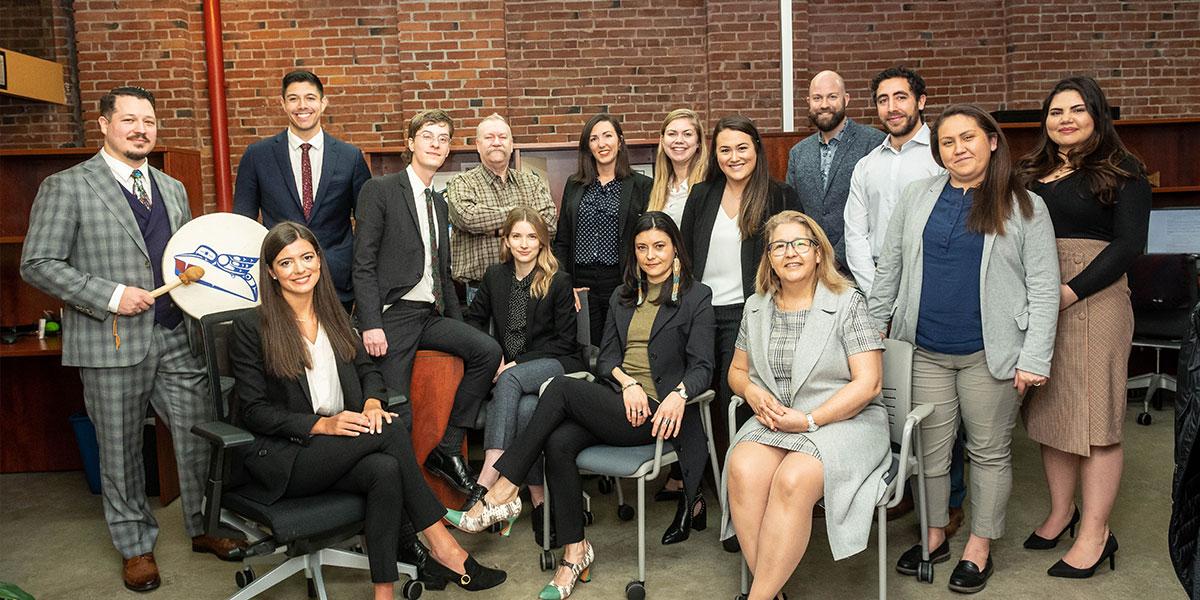Recognizing 25 years of UBC’s Indigenous Community Legal Clinic


UBC’s Indigenous Community Legal Clinic (ICLC) recently celebrated its 25-year anniversary. Ran by the Peter A. Allard School of Law, and located in Vancouver’s Downtown Eastside, the clinic provides free legal services to the Indigenous community.
To recognize their major milestone, we spoke with Academic Director, Patricia Barkaskas to learn more — including how they’ve been adapting to the recent situation with COVID-19.
What does the Indigenous Community Legal Clinic do?
We provide pro bono legal services to self-identifying Indigenous peoples throughout BC. We also provide clinical legal educational experience for up to 10 law students per term — three full-time terms a year — and support the Indigenous legal community by educating articling students.
What are the broader benefits of the clinic’s work?
The learning that happens here is reciprocal, engaged, and in many ways focused on decolonizing and Indigenizing approaches to legal work. That education isn’t just for our students, it’s also about the way they go into the world, and their interactions and relationships with opposing counsel, Crown counsel, and even judges. They are doing law differently, and educating the courts and the profession about how and why that’s necessary.
How important is the clinic’s presence in the Downtown Eastside?
The “community” piece of the ICLC is really important. We try hard to make community members feel welcome here. We think about this clinic as a place that’s built on relationships, which is the core of Indigenous understandings of how the world works. In our relationships we have responsibilities, and out of those responsibilities come the ways in which we are accountable to one another, and also where our rights would lie. The community depends on us to make sure we aren’t becoming overly focused on elevating our own reputation in a way that isn’t focused on the community.
How has COVID-19 affected the clinic?
We faced a tremendous challenge in mid-March due to the COVID-19 pandemic. We had to suddenly create a fully functioning virtual office space within the period of a week. But thanks to the unwavering support of Dean Dauvergne and the administrative team at Allard Law, as well as the dedication and adaptability of staff and students at the ICLC, we were able to make the transition almost seamlessly. This has enabled us to continue to operate full time and serve clients with open file matters.
What was your experience with the clinic before you became academic director?
I was a student clinician here in the spring term of 2010, and worked here for a summer. I volunteered during my third year of law school and after I was called to the bar. I was hired on contracts as an assistant lawyer until I applied for the academic director position in August of 2014. So basically, I came as a student and I never really left.
As somebody who’s been involved for a decade, what reflections did the clinic’s 25th anniversary bring for you?
One of the main reflections for me was simply how much this clinic means to the Indigenous community — here in the Downtown Eastside, but also throughout the Lower Mainland and different parts of the province where we send students with our traveling clinic. It is really the students who have made this clinic what it is. It’s their late nights, their anxious tears, and their hard work for the clients that is changing the way Indigenous peoples are being represented in law and legal contexts, with every file that we open.
What is in the clinic’s plans for 2020?
We’ve just gone through a huge period of growth and change. With that has come a lot of very happy chaos, but I feel like we are now stabilizing in our new capacity, with more students.
Given the current health crisis, we will continue to engage with Indigenous communities to explore building workshops and webinars on various topics. Our aim is to build webinars for advocates using a “train the trainer” model. I am hoping they will be interactive, with real time interface built in. We will also adapt workshop materials to the particular community an advocate works with so they can deliver the most relevant information on the ground for community members. We have to be patient, though, and relationships have to be at the heart of it. We’ve had 25 years to build up trust in this community, and it takes time to build those relationships.

Find the latest news, updates, events, and useful dates from across UBC, curated for faculty and staff by Internal Communications.
Access a library of resources from multiple UBC websites, all in one place.